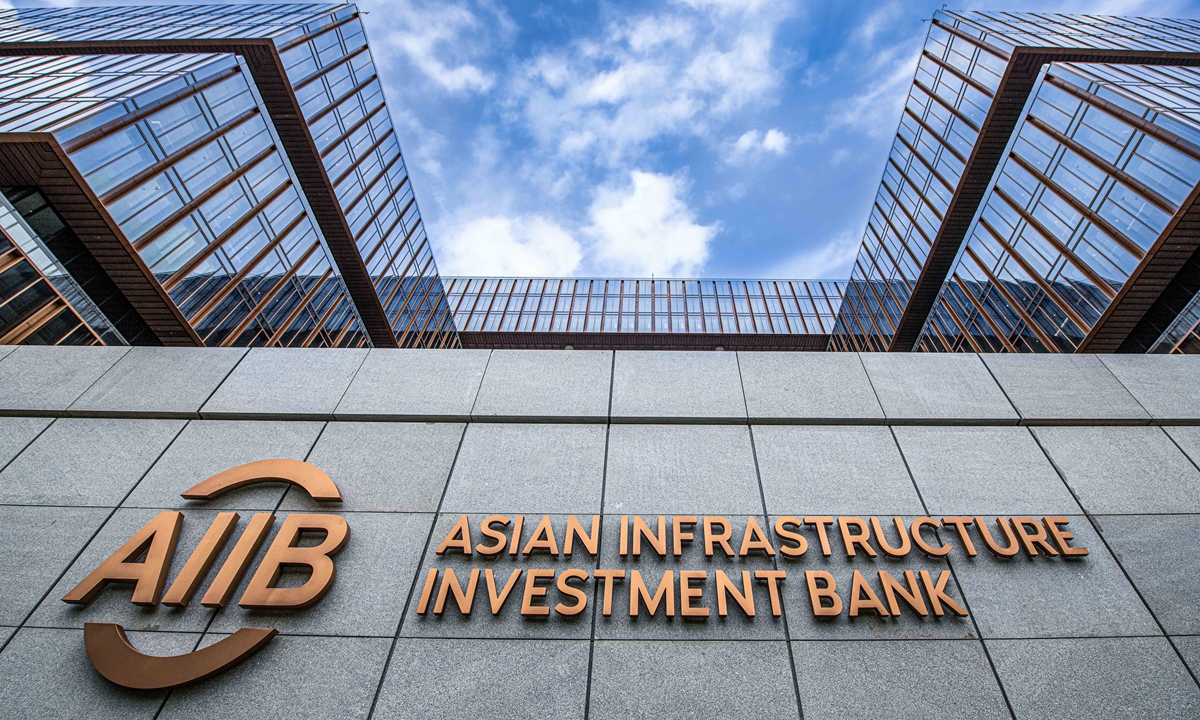
Photo: AIIB
Amid Russia-Ukraine tensions, the Asian Infrastructure Investment Bank (AIIB) announced that all activities related to Russia and Belarus are on hold and under review. Analysts said that the AIIB decision proves that its operations follow a market mechanism, which slammed the West's smear that AIIB is used as China's financial tool for its own interests.
"Our bank is monitoring the situation and assessing its impact on AIIB's operations and our members' economies. We will do our utmost to safeguard the financial integrity of AIIB, against the backdrop of the evolving economic and financial situation. Under these circumstances, and in the best interests of the bank, management has decided that all activities related to Russia and Belarus are on hold and under review," read a statement by the AIIB on Thursday.
Such a statement proves that the operations of AIIB follow a market mechanism, which slammed the West's smear that AIIB is a financial weapon of China, Mei Xinyu, a research fellow at the Chinese Academy of International Trade and Economic Cooperation of China's Ministry of Commerce, told the Global Times on Friday.
Ade Chen, general manager at Fund Investment in South China's Guangzhou, echoed Mei by saying that AIIB is of great help to infrastructure development in Asia.
"The [reason behind is that] West does not want China to build closer ties with its neighbors," Chen told the Global Times on Friday.
AIIB is a multilateral organization created by an international treaty, with an authorized capital of $100 billion. China, India and Russia have the top three voting shares on the AIIB's board.
An executive at a China-funded bank in Europe told the Global Times on Friday that AIIB's decision is reasonable. It is not intended to "punish" Russia and Belarus as some Western media reported, but to reduce risks and impact on customers of the bank. There's no need to read too much into it.
"As many Russian and Belarusian enterprises and industries were sanctioned, the economic and financial risks of businesses related to the two countries increased. Therefore, the businesses of customers are influenced," the executive said, on condition of anonymity.
For example, if a US company is one of the financers of a project that has relations with Russia or Belarus, it is now unable to continue financing the project. The project should be on hold and under review, while looking for new financers, the executive said.
AIIB said that it stands ready to extend financing flexibly and quickly and support members who have been adversely impacted by the war, directly or indirectly.
The executive said that settlement may also be affected as some Russian banks were kicked off the SWIFT system. But the impact should be little in general, as there are still some 300 Russian banks in the international settlement system.
"Such sanctions would promote and accelerate the replacement of the SWIFT system by other payment and clearing systems. Sanctions are only powerful if there is no alternative. But when there are competing products, isn't that a self-inflicted recession?" Mei noted.
Mei cited China's Cross-border Interbank Payment System (CIPS), China Foreign Exchange Trade System (CFETS) and Russia's Financial Message Transfer System of the Bank of Russia (SPFS) as examples.
"Several Russian banks have been connected to the CIPS, which will promote the use of the yuan in international settlements," Chen said.
As of January 2022, the CIPS has a total of 1,280 participants, including 75 direct participants and 1,205 indirect participants. The business scope has been extended to 148 countries and regions, data showed.




